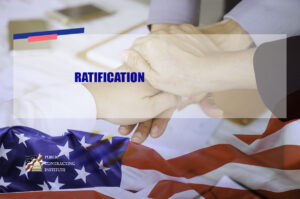This blog has frequently explained that generally, the government can only be bound contractually by a person with actual authority, normally a written delegation of authority known as a “warrant,” hence use of the term “warranted contracting officer” (e.g., Dept of State Acq. Reg. 48 CFR § 601.601–70, Dept of Veterans Affairs Acq. Regulation 48 CFR § 801.690–5). Although it does not use the phrase “warranted contracting officer,” the Federal Acquisition Regulation (“FAR”) states that only “Contracting Officers have authority to enter into…[and] may bind the government only to the extent of the authority delegated to them.” FAR 1.602-1. The question for this blog is whether a contractor can be paid if it has performed work or delivered a product without a properly signed contract? The answer is “YES”, if there was “ratification” by the government of an unauthorized act. A recent Civilian Board case explains this somewhat rare situation. Americom Gov’t Serv., Inc. v. General Sevices Admin., CBCA 2294, March 31, 2016.

Americom received a task order from the General Services Administration (“GSA”) for continuation of Host Nation satellite licenses and bandwidth services for use by U.S. Forces in Korea. Americom invoiced GSA for $$579,793 and GSA approved and paid the full invoice. Some time after the payment, GSA realized that the licenses and bandwidth services were not covered under the task order or any other contract. GSA “recouped” this amount by deducting the money from payments made to Americom on other valid invoices. It was undisputed that Americom had provided the satellite licenses and bandwidth services, but GSA noted that there was no valid contract instrument signed by an authorized contracting official, and the Board agreed there was no valid contract signed by a contracting officer. Then the Board addressed the question of ratification.
Before explaining why Americom won, it should be recognized that there is an internal, government dynamic that confused this payment issue—Military Interdepartmental Purchase Requests (“MIPRs”). MIPRs are funding and not contract documents. In this acquisition, US Force in Korea identified for GSA what it wanted, provided funding through a MIPR, and GSA executed the actual purchase agreement (for a four percent fee). Once award was made, GSA simply became a conduit for payments and did not manage the procurement. US Forces Korea submitted a MIPR to GSA to cover the licenses and bandwidth services, but GSA failed to place the money on any contract.
The licenses and bandwidths were provided between 2004-05, and the invoice for all of them was dated June 22, 2005. GSA paid the full invoice in September 2005, but some time between November 2005 and May 2006, the GSA discovered that the payment was in error and began to recoup the money, completing the recoupment by March 2006.
GSA’s position was simple:
because there was no valid contract instrument, the payment to Americom was by mistake and Americom “must bear the consequences.” The Board held otherwise. It noted that ratification is “the adoption of an unauthorized act resulting in that act being given effect as if originally authorized. It validates a formerly unauthorized contractual action.” Further:
- The Board noted that ratification is used when there are unauthorized commitments benefitting the government for which a contractor could not otherwise be paid. It cited Janowsky v. United States, 133 F. 3d 888 (Fed. Cir. 1998), where a contract for an FBI informant as part of a “sting” was ratified when the agency had overreached by allowing the continuation of services and benefits, but denied payments.
- An earlier unauthorized commitment does not have to be expressly authorized to be ratified. It can be ratified by the actions or inactions of a government official that possessed contracting authority.
- The Government can be bound to pay for otherwise unauthorized contract work, even where neither the initial commitment nor the ratification was carried out by an official empowered with contracting authority.
- The Government can ratify an otherwise unauthorized contract commitment through a direct affirmative act or by constructive means. Constructive notice can be established where an official knew or should have known of a matter but allowed it to continue. Silence or inaction may constitute adoption, including the failure of an authorized representative to curtail a contractor’s activity.
The Board concluded that GSA had allowed US Forces Korea to continue using the licenses, thereby taking benefits from Americom at no cost. GSA knew that the licenses were being used and had not been properly procured. Janowsky makes it clear that the Government cannot continue to receive the benefits and expect not to pay for them. By failing to act, GSA gave the government an “undeserved windfall.” The fact that there was no authorized contract did not give the government the right to use the licenses for free. The Board awarded Americom the charges that continued after GSA received notice but failed to take action to stop the usage of those licenses.
The lessons of this case are clear:
(1) Contractors should stop providing services, goods or licenses if they do not have a signed contract. Had Americom stopped when its original contract ended, US Forces Korea would have resolved the issue with GSA. However, US Forces Korea didn’t realize there was a problem because it had sent GSA the money on the MIPR and was still receiving the benefits of the license.
(2) If a contractor doesn’t even realize that it lacks a signed contract, but delivers goods or services to the benefit of the government, the contractor should take immediate action with the agency to resolve the matter when it first discovers the problem. If the government knew that it was receiving goods or services without a contract, and the government failed to stop the receipt of same, a contractor would have a strong case for ratification.



